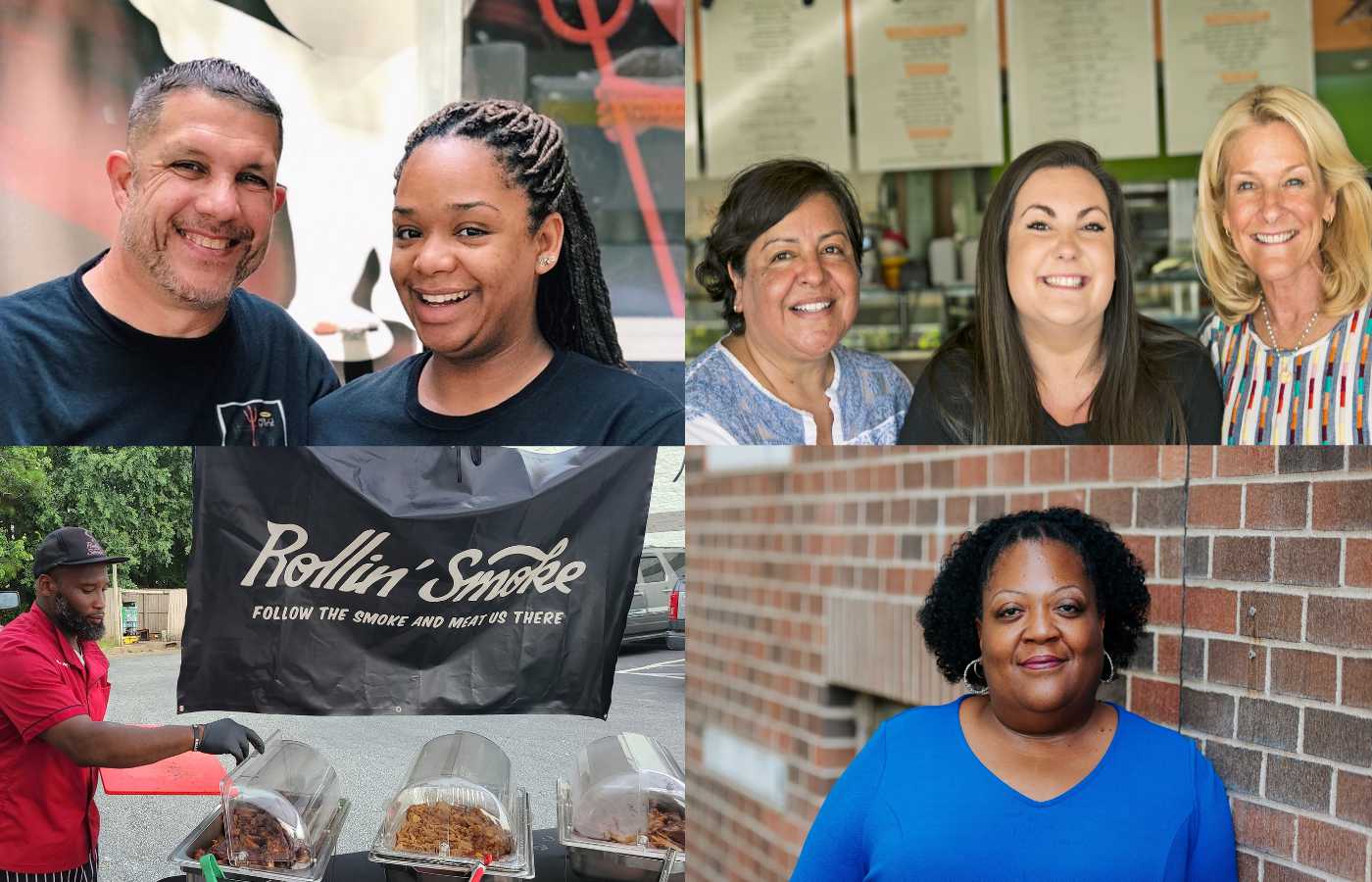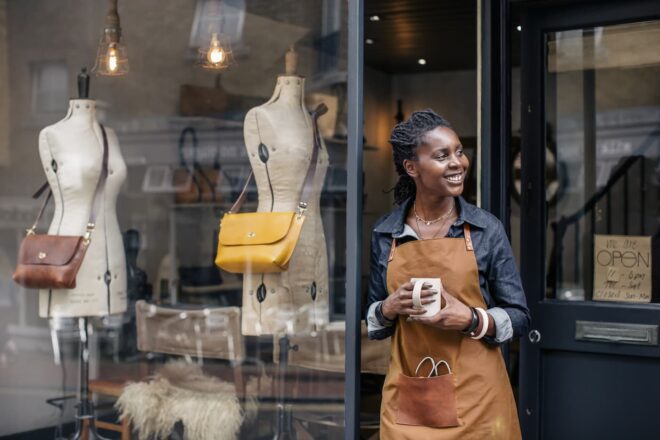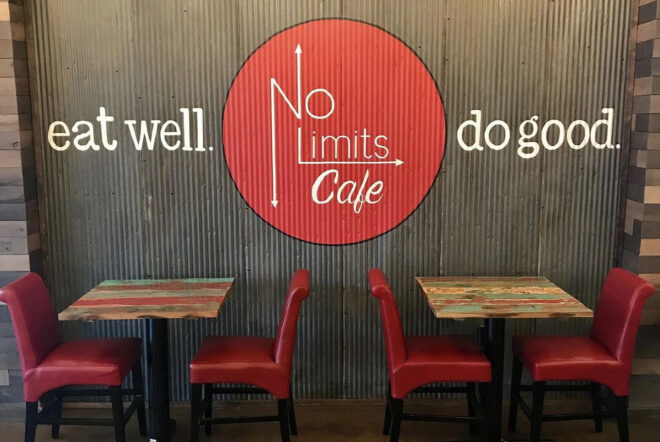5 takeaways from Clover merchants on building a resilient catering business
Editorial Team
6 min read
Considering starting a catering business or offering catering as an add-on service at your restaurant? With the global catering services market poised to nearly double within the next decade, now’s a great time to take steps to opening a catering business and positioning it for changing market demand.
These Clover merchants can help with 5 takeaways on building and managing a resilient catering business.
1. Take it to the streets
Holy Rolly Charleston offers “sinful” and “saintly” made-from-scratch rolled ice cream in Charleston, South Carolina. Self-professed ice cream fanatics, LaToya Gardner and her husband left corporate jobs to start a food truck business focused on delicious rolled ice cream treats. After trying their hand at lots of different kinds of events–festivals, business lunches, and private events, among others–they quickly realized their market was primarily family and kid events.
“We weren’t having the same success at festivals that weren’t family friendly,” says Gardner.
Then came the pandemic, and event bookings plummeted. So, they decided to take their treats to local neighborhoods. “We saw our business almost double, and we saw a huge spike in sales because so many restaurants were closed.” Reopenings would, of course, offer the hope of returning to family-friendly festivals–a mainstay of their business.
Takeaway: When the local market demand shifts suddenly, roll with it, look for different ways to serve customers, and take your food to them.
2. Step out of the box
When it comes to food and dining preferences, one size doesn’t fit all, as Natalie Richardson has found. Lulu (Lourdes) Lopez was the inspiration for Natalie Richardson’s Lulu’s Mexican Food, offering scrumptious food in multiple Californian locations. Lopez had introduced Richardson to the wonderful cuisine she had grown up with in Michoacán, a small pueblo in Mexico. Lulu and Natalie began to develop those recipes together, and the rest is the stuff of great culinary partnerships.
Having multiple locations has meant that Richardson has had to understand the unique personality of each market and meet unique market demands for each location. While most of her restaurants are sit-down establishments, the Palo Alto location near Stanford University is walk-in only, serving the local lunchtime crowd and students who like a grab-n-go style of food presentation.
Takeaway: Step outside the box to offer options, like grab-n-go meals for casual events, that meet the unique personalities and demands of your markets.
3. Find success in your own backyard
Back in 2010, Dejuan Smith and Taneesha Thomas established Rollin’ Smoke BBQ, a street vending and mobile catering business based in Conyers, Georgia. They learned early on that their local customers like a backyard experience. And that’s what they give them. As Smith explains, Rollin’ Smoke BBQ creates ”a whole backyard experience. We have a couple of tents set up and a couple of tables under the tents. People grab their sandwich, their lawn chair, and hang out listening to some old, down-home blues or jazz while they’re waiting on their food.”
They balance their backyard vending with catering gigs, often catering for various corporate events during the week. Being near Atlanta, that can also mean catering on-set for film crews.
Takeaway: Creating an experience doesn’t have to be fancy or expensive. Sometimes, it’s simply using what you already have to create a comfortable, familiar vibe–like a backyard, tents, lawn chairs, and good food.
4. Pivot, pivot, pivot
Gladys Harrison, owner of Big Mama’s Kitchen and Catering in Omaha, NE, grew up in a family of cooks. While her mother, affectionately known as “Big Mama,” nurtured her family and held a corporate job, she cooked. “Ever since I can remember, she also ran a catering business out of our house,” says Harrison. “She started out making beautiful cakes of all sorts and her home-based business grew from there.” After 30+ years in corporate communications, Big Mama retired to pursue other passions: she was a missionary in Africa and even had a short-lived career as a clown at birthday parties for her grandchildren.
Later, she started a catering business with her daughters, including Harrison, operating first in the church parsonage on weekends and during the summer, then from a former school with a huge kitchen, “where hundreds of meals were prepared daily for the students who used to go to school there.” Big Mama wanted her customers to feel like they were enjoying a meal at grandma’s house. And so they grew the business–even moving to a new location. Then the pandemic hit, and sales tumbled.
“In the beginning of the pandemic, I wanted to figure out what we could do to help the people who live around us. So, we started doing take-and-bake meals at affordable prices where we prepare an entree, a side dish, and include a bag of our cornbread mix for customers to bake at home.” Harrison says they also sold staple ingredients in small quantities. That experience motivated them to amp up their catering business.
Takeaway: When the unexpected strikes, Harrison says: “Seek creative, out-of-the-box ways to get your product to your customer…. And do not be afraid to try new things.”
READ: How to create your restaurant’s catering menu
5. Offer payments on the go
Whether your catering business serves up events, pop-up workshops like Aliska’s Amazing Pickles, corporate catering like Lonni’s Sandwiches, or farmer’s markets like Waffles in Paradise, being prepared to take payments anywhere, anytime is crucial to creating a great customer experience that can pivot with the market. And Clover has just the ticket to get you payment-ready quickly.
Clover Go is a portable credit card reader that pairs with the Go app on your mobile device to take payments wherever you do business. And, Clover Flex is a handheld POS that can be used at the counter, at the table, or on the go. What’s more, your Clover system accepts payments–credit cards, debit cards, gift cards, and contactless payments–anywhere and fast.
Or, you can send a simple invoice to your customers by email that allows them to pay you online by credit or debit card.
Takeaway: Be sure your catering business is all set to take payments anywhere, anytime.
Read more stories about how Clover is helping food and beverage merchants start businesses and expand into catering. And, connect with a Clover Business Consultant today to learn more about getting payments set up simply and quickly.
Related Posts
How Clover POS supports working mother entrepreneurs
No Limits Cafe
Popular Topics
Stay In Touch
Sign up and learn more about Clover.
Thank you for your subscription!
Recent Stories
- Jewelry store supplies and equipment needed for opening day
- How small businesses can use employee discounts to retain staff
- Tips and tricks for opening an outdoor pop-up restaurant
Please share your contact information
to access our premium content.
Thank you for sharing your contact information.
Download Now





